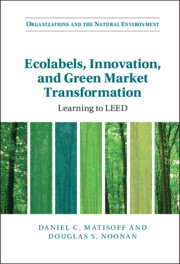Data governance is an emerging field of study concerned with how a range of actors can successfully manage data assets according to rules of engagement, decision rights, and accountabilities. Urban studies scholarship has continued to demonstrate and criticize lack of community engagement in smart city development and urban data governance projects, including in local sustainability initiatives. However, few move beyond critique to unpack in more detail what community engagement should look like. To overcome this gap, we develop and test a participatory methodology to identify approaches to empowering community engagement in data governance in the context of the Monash Net Zero Precinct in Melbourne, Australia. Our approach uses design for social innovation to enable a small group of “precinct citizens” to co-design prototypes and multicriteria mapping as a participatory appraisal method to open up and reveal a diversity of perspectives and uncertainties on data governance approaches. The findings reveal the importance of creating deliberative spaces for pluralising community engagement in data governance that consider the diverse values and interests of precinct citizens. This research points toward new ways to conceptualize and design enabling processes of community engagement in data governance and reflects on implementation strategies attuned to the politics of participation to support the embedding of these innovations within specific socio-institutional contexts.


